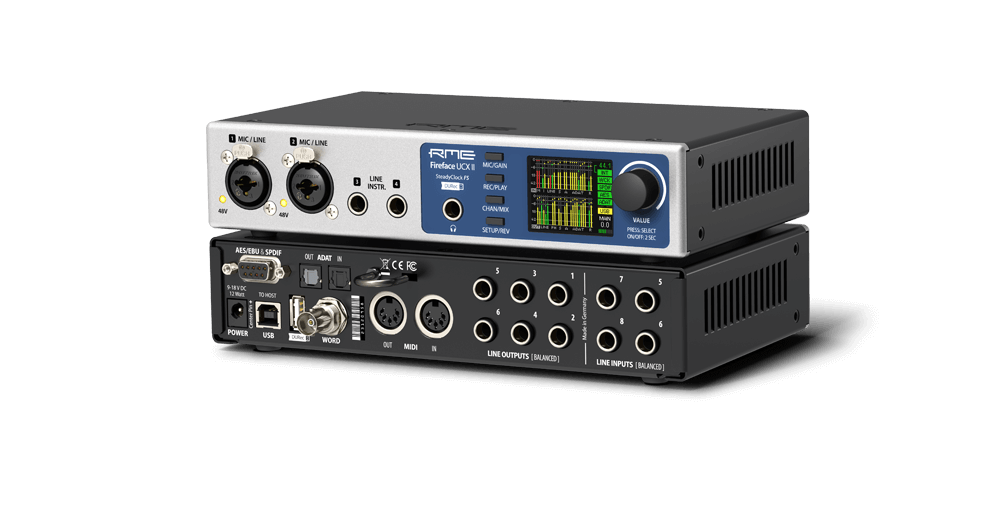RME
RME - Fireface UCX II
RME - Fireface UCX II
Impossibile caricare la disponibilità di ritiro
The most powerful & portable RME Audio USB Interface
This unique audio system is capable of transferring analog and digital audio data directly to Windows and Mac computers. The latest Plug and Play technology guarantees a simple installation, even for the inexperienced user. Numerous unique features like a well thought-out Settings dialog and an integrated routing solution realize a quick, comfortable and efficient operation of the Fireface UCX II.
The Fireface UCX II houses two mic/line preamps in XLR combo configuration on the front panel, along with two digitally controlled line/instrument inputs, followed by a headphone jack, various control buttons, a display, and the main volume knob. At the rear is a set of ten analogue balanced line inputs and outputs, MIDI I/O, ADAT I/O, AES/EBU and SPDIF I/O, USB 2.0 as well as a switchable word clock I/O.
With the SteadyClock FS, the Fireface UCX II features the latest clock and jitter rejection technology from RME. Based on a femtosecond clock, SteadyClock FS reduces the intrinsic jitter when converting from and to analogue over all digital formats to a new all-time low.
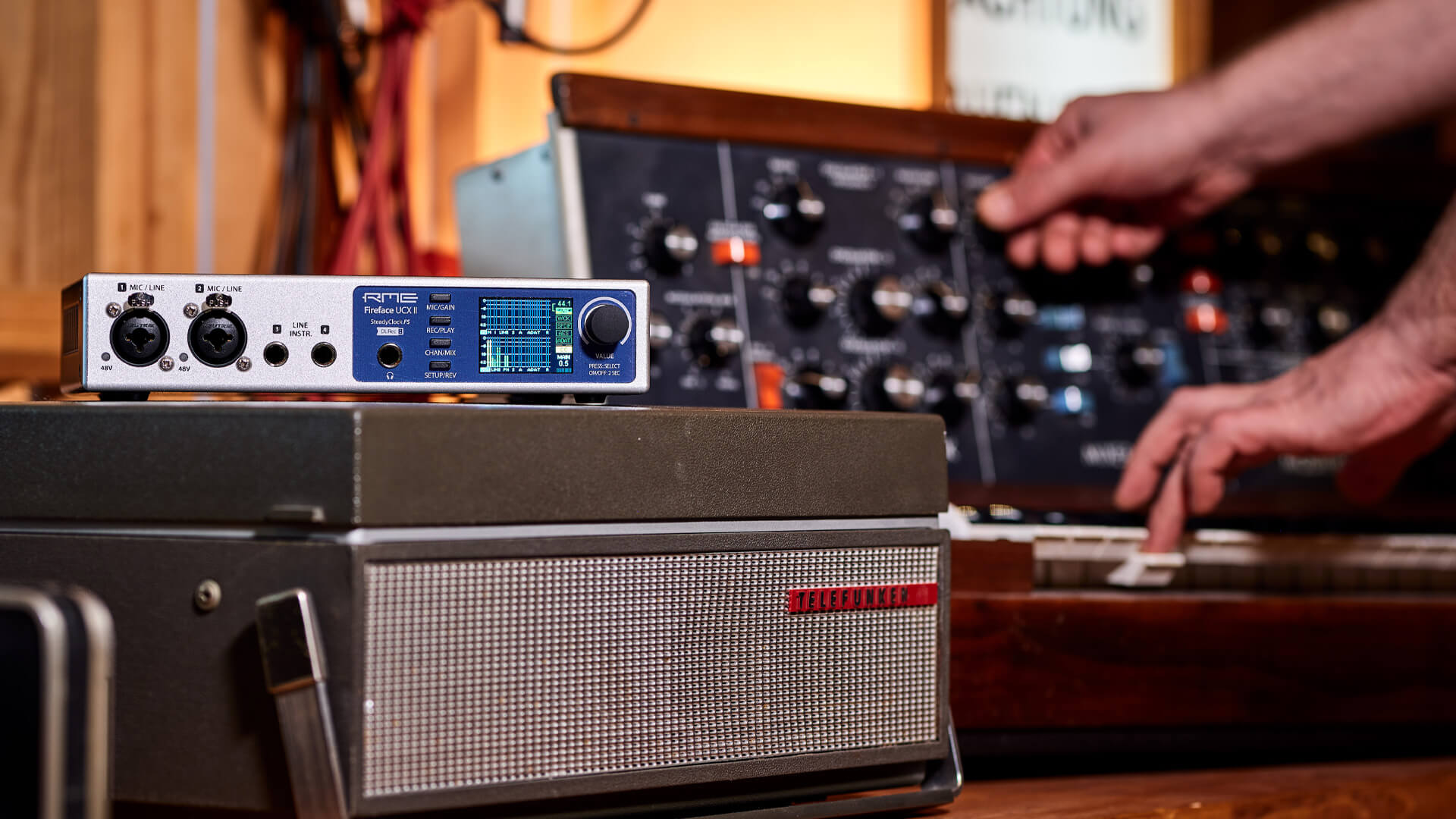
The Fireface UCX II excels with the highest feature to space ratio ever
Full Stand-alone Functionality
Control all device states directly from the front panel for convenient, direct access to all features. Four keys and the encoder, the high-resolution and clear color display, and a well thought-out menu structure enable the user to quickly change and configure the device’s settings. Additionally internal memory allows for the permanent storage of six different states of the unit. Therefore the Fireface UCX II is able to operate fully stand-alone, without any connected computer. In stand-alone operation it can transform into totally different devices by the simple click of a button. Furthermore TotalMix FX can also be controlled via MIDI.
40-Channels ready for your Mobile Recording Rig
DURec is an integrated digital recorder for all inputs and outputs directly to USB memory devices via the rear USB port. It allows to record on USB thumb drives or hard drives with up to 2 TB capacity. The recording functionality is provided by the internal DSP, and is therefore independent from a connected Windows or Mac computer. This USB port can alternatively be used for direct connection of RME’s optional ARC USB remote control.
The Direct USB Recording converts the Fireface UCX II into a stand-alone field recorder and a powerful multichannel live player for previous recordings, e. g. for virtual sound checks. Live concerts, band rehearsals or spontaneous jam sessions can be directly recorded and played back from the medium - even completely stand-alone without computer or software. All input and output channels can be individually chosen for recording and playback.
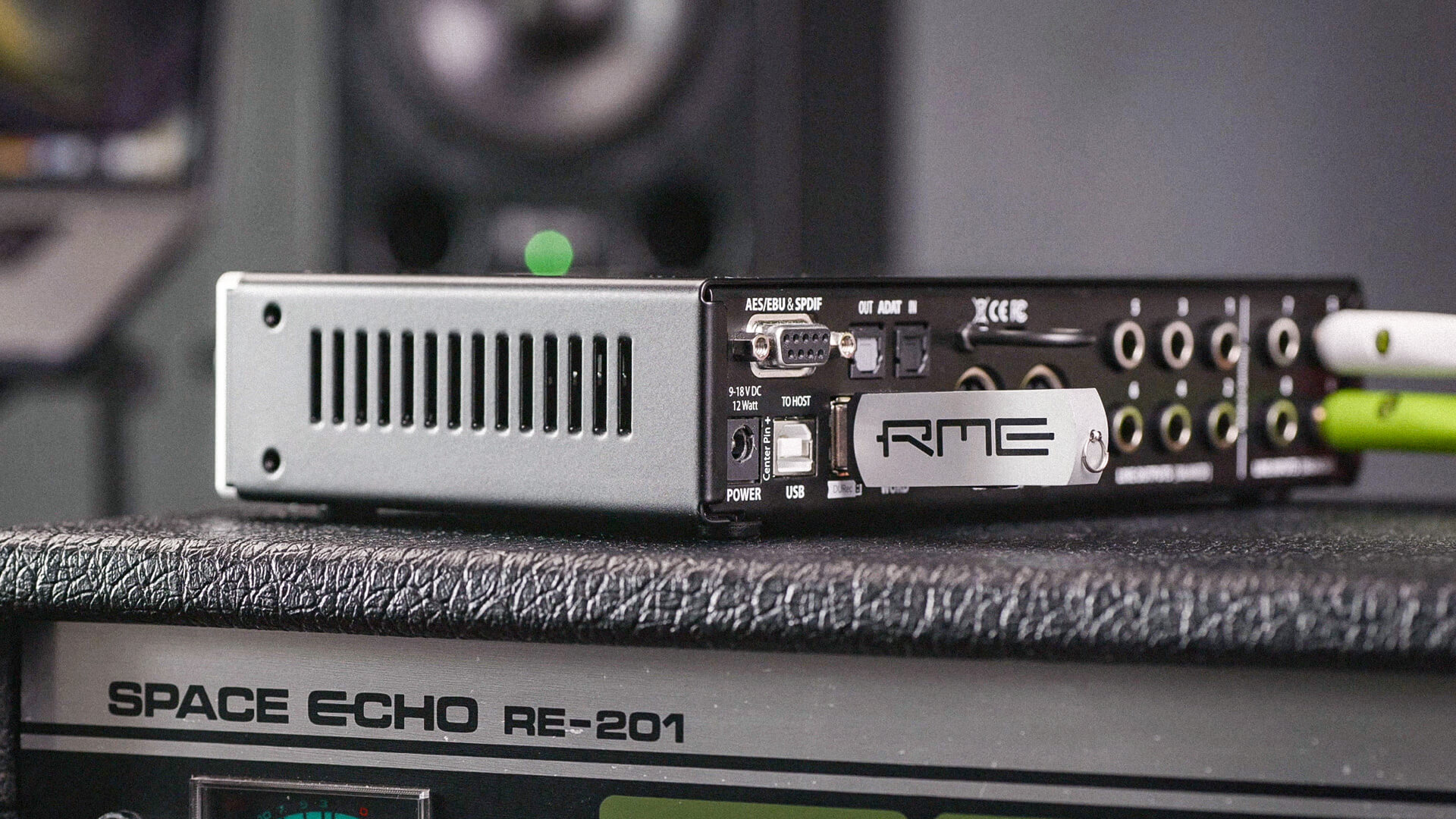
All inputs or outputs of the Fireface UCX II can be recorded directly to a USB storage device
Powerful Applications for Mixing, Monitoring and Measurement included
The Fireface UCX II comes with the TotalMix FX DSP mixer offering comprehensive routing and monitoring options, as well as the DIGICheck Analyzer allowing to measure and analyze the digital data feed in both directions with maximum precision. TotalMix FX can completely replace an external mixer, enabling the creation of multiple latency-free monitor mixes with EQ, Dynamics, Reverb and Delay for any outputs, incl. main monitors and headphone mixes for musicians.
The additional TotalMix Remote is a remote control for TotalMix FX, to control the hardware mixer and effects in RME audio interfaces. TotalMix Remote mirrors the current state of the host system on the iPad and Windows/Mac computers - the entire mixing state, the complete routing, all FX settings, up to the level meters, and everything in real-time. Easily adjust all the mixer and FX settings from a distance, via Ethernet and WiFi.
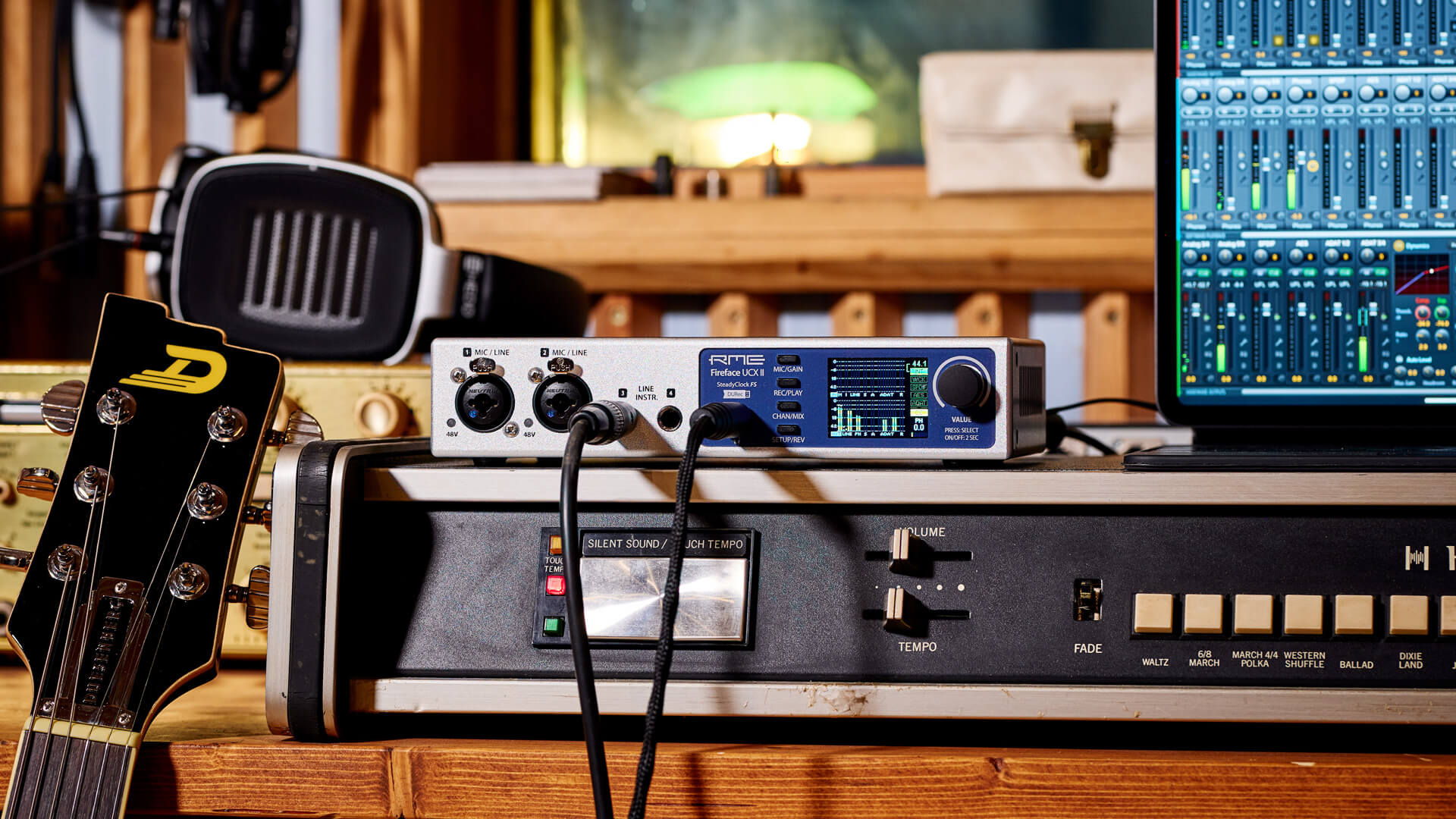
TotalMix FX and DigiCheck are included with your RME Audio Interface
DC-Coupled Outputs - CV/Gate Voltage Control
Most audio interfaces are traditionally designed with what is called 'AC-coupled outputs', where capacitors are used to filter out any extreme low frequencies.
Whilst these frequencies are generally considered undesirable for audio - eating into headroom and potentially causing damage to other equipment - one instance where DC-coupling remains desirable is the world of modular synthesizers, where static or slow-moving signals are used for control over various parameters such as pitch note values or LFOs.
All of the Fireface UCX II’s line-level outputs are fully DC-coupled, allowing for the sending of control voltages (CV) or Gate information to modular synthesizers (such as the popular Eurorack and Moog/MOTM/Synthesizers formats) and other studio hardware.
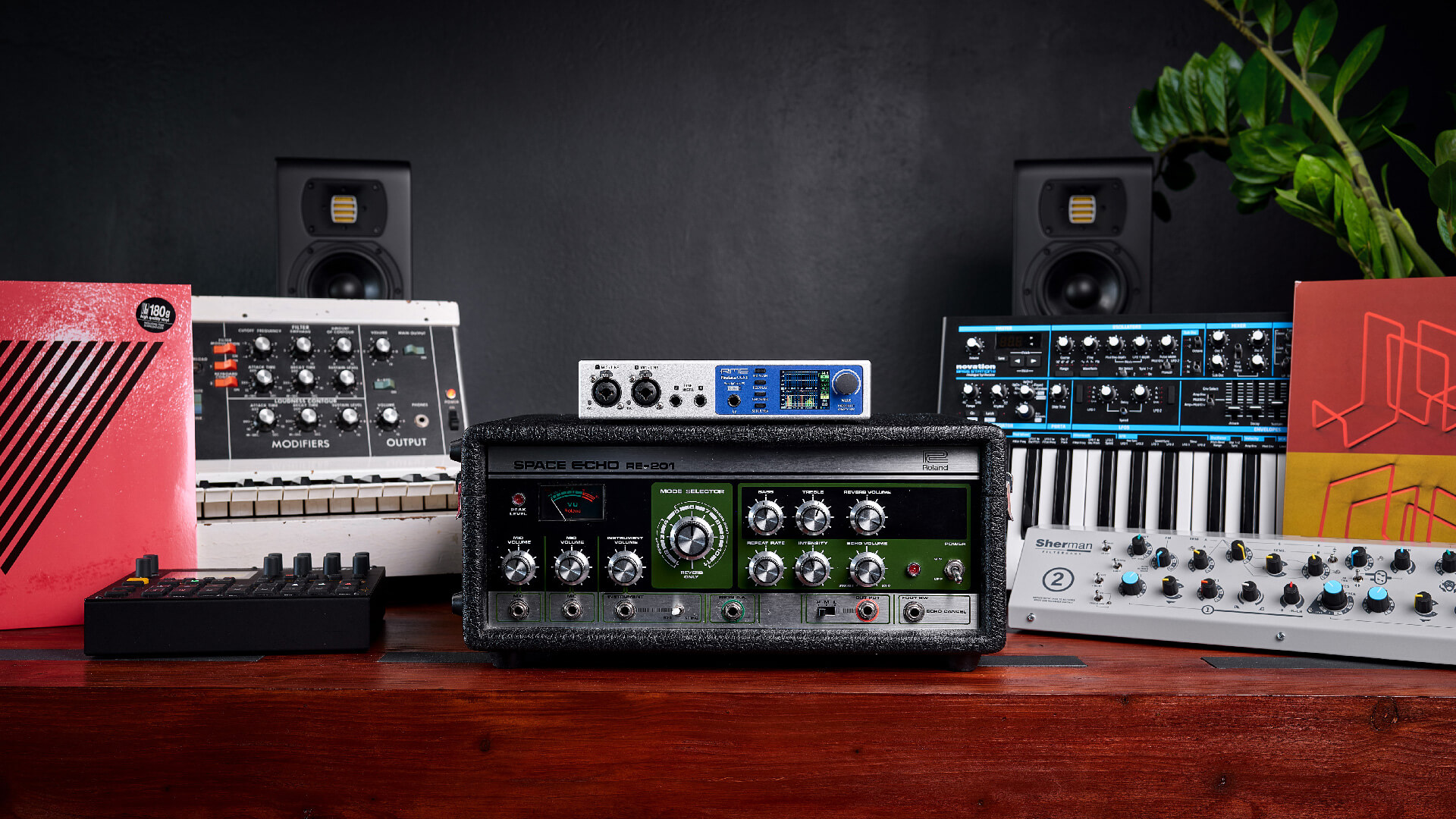
Send CV/Gate information to control modular hardware and software
Class Compliant Audio
The Fireface UCX II operates in two different modes: driver-based USB2 and Class Compliant. The Class Compliant mode is a standard that is natively supported by operating systems like Windows, Mac OSX and Linux distributions. No proprietary drivers are required, the device will be directly recognized when the CC firmware is loaded. The natively available features will be limited in comparison to those provided by the RME driver for the UCX II.
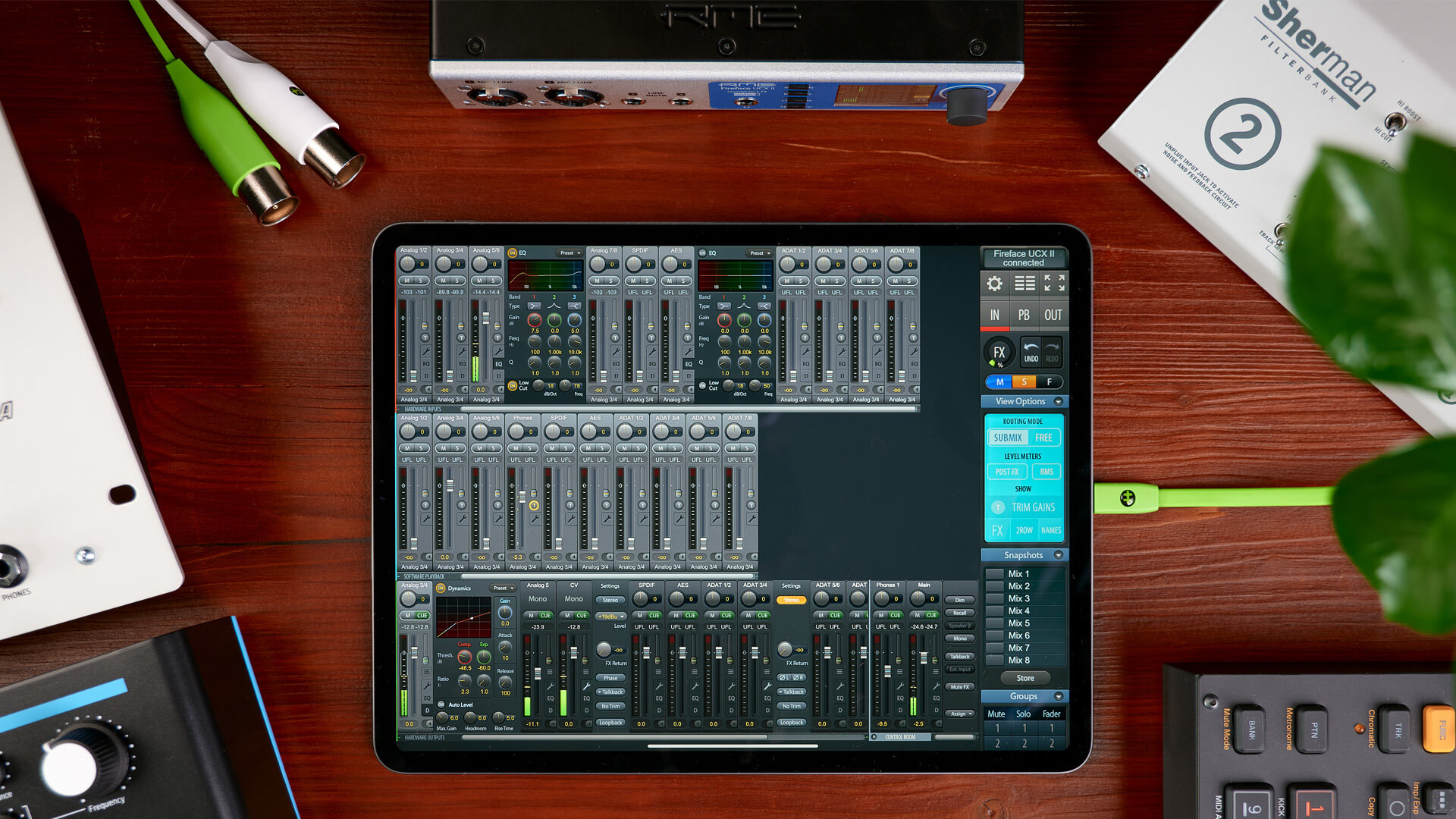
Professional analog I/O connections for iOS and other operating systems
Specs
Fireface UCX II
Analog
AD, Line In 5-8, rear
- Resolution AD: 24 bit
- Signal to Noise ratio (SNR): 112 dB RMS unweighted, 115 dBA
- Frequency response @ 44.1 kHz, -0.1 dB: 5 Hz – 20.8 kHz
- Frequency response @ 96 kHz, -0.5 dB: 3 Hz – 45.8 kHz
- Frequency response @ 192 kHz, -1 dB: 2 Hz – 92 kHz
- THD: < -110 dB, < 0.00032 %
- THD+N: < -104 dB, < 0.00063 %
- Channel separation: > 110 dB
- Input: 6.3 mm TRS jack, electronically balanced
- Input impedance: 8 kOhm unbalanced, 12 kOhm balanced
- Input sensitivity switchable to +19 dBu and +13 dBu
- Variable gain: 0 to +12 dB
- Minimum level for 0 dBFS: +1 dBu, -1.2 dBV
Line In 3-4, front
As AD, but:
- Additional Gain stage: 0 up to +12 dB
- Maximum input level, +19 dBu, Gain 0 dB: Line +19 dBu, Inst +13 dBu
- Maximum input level, +13 dBu, Gain 12 dB: Line +1 dBu, Inst -5 dBu
- Input impedance: Instrument 1 MOhm. Line 13 kOhm balanced, 9 kOhm unbalanced
- Input Gain Inst: +6 dB
- Input mode: Line balanced (TRS), Inst unbalanced (TS)
Microphone In 1-2, front
As AD, but:
- Input: XLR, electronically balanced
- Input impedance: 5.4 kOhm
- Gain range: 75 dB
- Maximum input level, Gain 0 dB: +18 dBu
- Maximum input level, Gain 75 dB: -57 dBu
- EIN: -128 dBu A-weighted, 60 dB gain,150 Ohm, 20 Hz – 20 kHz
Line In 1-2
As AD, but:
- Input: TRS, electronically balanced
- Input impedance: 10 kOhm balanced, 5 kOhm unbalanced
- Maximum input level, Gain 0 dB: +24 dBu
- Maximum input level, Gain 75 dB: -51 dBu
DA, Line Out 1-6, rear
- Resolution: 24 bit
- Dynamic range (DR): 112 dB RMS unweighted, 115 dBA
- Frequency response @ 44.1 kHz, -0.5 dB: 5 Hz – 20.8 kHz
- Frequency response @ 96 kHz, -0.5 dB: 5 Hz – 45 kHz
- Frequency response @ 192 kHz, -1 dB: 5 Hz - 89 kHz
- THD: < -108 dB, < 0.0004 %
- THD+N: < -104 dB, < 0.00063 %
- Channel separation: > 110 dB
- Maximum output level: +19 dBu
- Output: 6.3 mm TRS jack, servo-balanced
- Output impedance: 75 Ohm
- Output level switchable +19 dBu, +13 dBu, +4 dBu
DA - Stereo Monitor Output Phones (7-8)
As DA, but:
- Output: 6.3 mm TRS stereo jack, unbalanced
- Maximum output level at 0 dBFS, High: +19 dBu
- Maximum output level at 0 dBFS, Low: +4 dBu
- Output impedance: 1 Ohm
- Max power per channel @ 32 Ohm load, 0.1% THD: 210 mW (2.6 Vrms, +10.5 dBu)
MIDI
- 1 x MIDI I/O via 5-pin DIN jacks
- Galvanically isolated by optocoupled input
- Hi-speed mode: Jitter and response time typically below 1 ms
- Separate 128 byte FIFOs for input and output
Digital
- Clocks: Internal, ADAT, AES, SPDIF, word clock
- Jitter suppression of external clocks: > 50 dB (2.4 kHz)
- Effective clock jitter influence on AD and DA conversion: near zero
- PLL ensures zero dropout, even at more than 100 ns jitter
- Digital Bitclock PLL for trouble-free varispeed ADAT operation
- Supported sample rates: 28 kHz up to 200 kHz
Digital Inputs
AES/EBU
- 1 x XLR, transformer-balanced, galvanically isolated, according to AES3-1992
- High-sensitivity input stage (< 0.3 Vpp)
- SPDIF compatible (IEC 60958)
- Accepts Consumer and Professional format
- Lock range: 27 kHz – 200 kHz
- Jitter suppression: > 50 dB (2.4 kHz)
SPDIF coaxial
- 1 x RCA, according to IEC 60958
- High-sensitivity input stage (< 0.3 Vpp)
- Accepts Consumer and Professional format, copy protection will be ignored
- Lock Range: 27 kHz – 200 kHz
- Jitter suppression: > 50 dB (2.4 kHz)
ADAT Optical
- 1 x TOSLINK, format according to Alesis specification
- Standard: 8 channels 24 bit, up to 48 kHz
- Double Speed (S/MUX): 4 channels 24 bit 96 kHz
- Quad Speed (S/MUX4): 2 channels 24 bit 192 kHz
- Bitclock PLL ensures perfect synchronisation even in varispeed operation
- Lock range: 31.5 kHz – 50 kHz
- Jitter suppression: > 50 dB (2.4 kHz)
- SPDIF compatible (automatic detection)
Word Clock
- BNC
- Internal termination 75 Ohm switchable
- Automatic Double/Quad Speed detection and internal conversion to Single Speed
- SteadyClock guarantees super low jitter synchronization even in varispeed operation
- Not affected by DC-offsets within the network
- Signal Adaptation Circuit: signal refresh through auto-center and hysteresis
- Overvoltage protection
- Level range: 1.0 Vpp – 5.6 Vpp
- Lock Range: 27 kHz – 200 kHz
- Jitter suppression: > 50 dB (2.4 kHz)
Digital Outputs
AES/EBU
- XLR, transformer-balanced, galvanically isolated, according to AES3-1992
- Output level Professional 4.5 Vpp, Consumer 2.6 Vpp
- Format Professional according to AES3-1992 Amendment 4
- Format Consumer (SPDIF) according to IEC 60958
- Single Wire mode, sample rate 28 kHz up to 200 kHz
SPDIF coaxial
- 1 x RCA, according to IEC 60958
- Output level Professional 1.2 Vpp, Consumer 0.6 Vpp
- Format Professional according to AES3-1992 Amendment 4
- Format Consumer (SPDIF) according to IEC 60958
- Single Wire mode, sample rate 28 kHz up to 200 kHz
ADAT
- 1 x TOSLINK, format according to Alesis specification
- Standard: 8 channels 24 bit, up to 48 kHz
- Double Speed (S/MUX): 4 channels 24 bit 96 kHz
- Quad Speed (S/MUX4): 2 channels 24 bit 192 kHz
Word Clock
- BNC
- Max. output voltage: 5 Vpp
- Output voltage @ 75 Ohm termination: 4.0 Vpp
- Output impedance: 10 Ohm
- Frequency range: 27 kHz – 200 kHz
General
- Power supply: external power supply
- Typical power consumption: 13 Watts
- Current at 12 Volt operating voltage: 910 mA (11 Watts)
- Dimensions incl. rack ears, full depth (WxHxD): 258 x 44 x 155 mm (10.16" x 1.73" x 6.1")
- Dimensions without rack ears, body depth (WxHxD): 215 x 44 x 130 mm (8.5" x 1.73" x 5.1")
- Weight: 910 g ( 2.0 lbs)
- Temperature range: +5° up to +50° Celsius (41° F up to 122°F)
- Relative humidity: < 75%, non condensing
